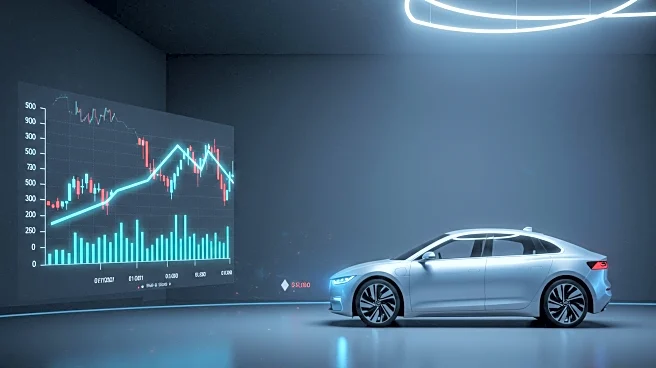What's Happening?
In the second quarter of 2025, U.S. auto sales increased by 3% compared to the same period in 2024 and 2023. This growth marks a shift from the volatile post-COVID years, where sales dropped by 10% in 2021 and rose by 17% in 2022. The leading auto brands in the U.S. during this period were Ford and Toyota, followed by Chevrolet, Honda, and Hyundai. However, Tesla, a major player in the electric vehicle market, saw a significant decline in sales, dropping by 13% or 20,729 units year-over-year, moving from 9th to 11th place in the rankings. Other electric vehicle brands like Rivian and Lucid also faced challenges, with Rivian's sales decreasing by 23% and Lucid maintaining its position despite a 10% increase in sales.
Why It's Important?
The decline in Tesla's sales amidst a general rise in U.S. auto sales highlights the competitive and evolving nature of the automotive market, particularly in the electric vehicle sector. Tesla's drop in rankings could impact its market share and influence in the industry, potentially benefiting traditional automakers like Ford and Toyota, which have shown growth. The performance of electric vehicle brands like Rivian and Lucid also underscores the challenges new entrants face in gaining traction against established players. This shift could influence investment strategies, consumer preferences, and the future direction of automotive innovation and sustainability efforts.
What's Next?
Tesla and other electric vehicle manufacturers may need to reassess their strategies to regain market position and address the factors contributing to their sales decline. This could involve innovations in technology, pricing strategies, or expanding their market reach. The broader automotive industry will likely continue to focus on electric vehicle development, given the overall increase in electric vehicle sales. Stakeholders, including investors and policymakers, will be closely monitoring these trends to make informed decisions about future investments and regulatory measures.










